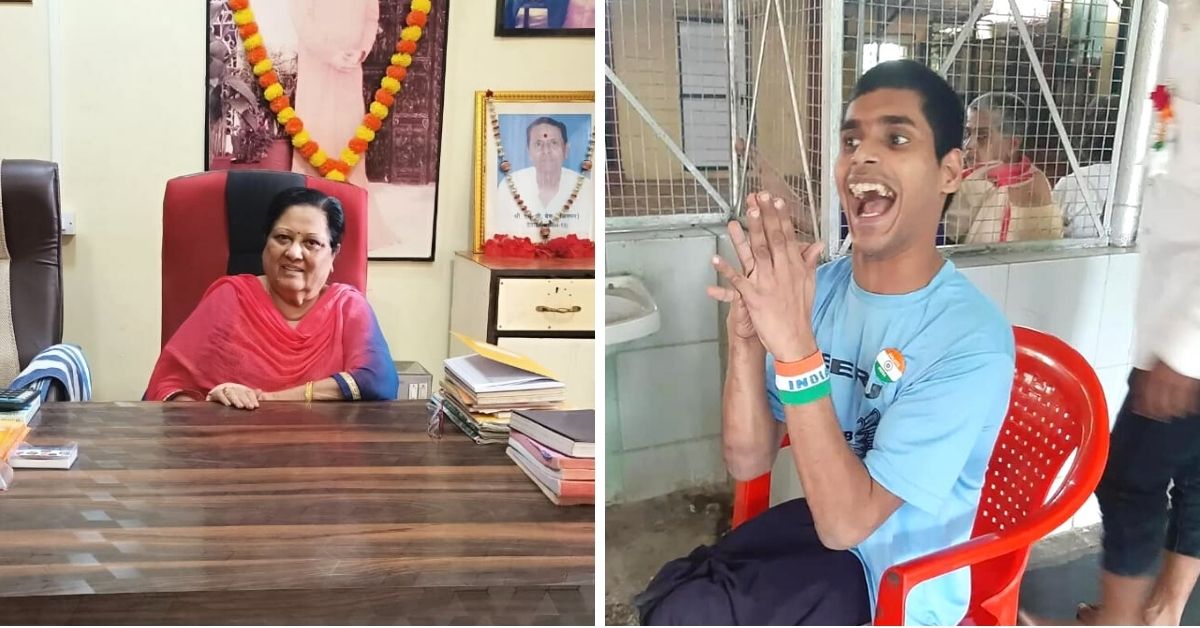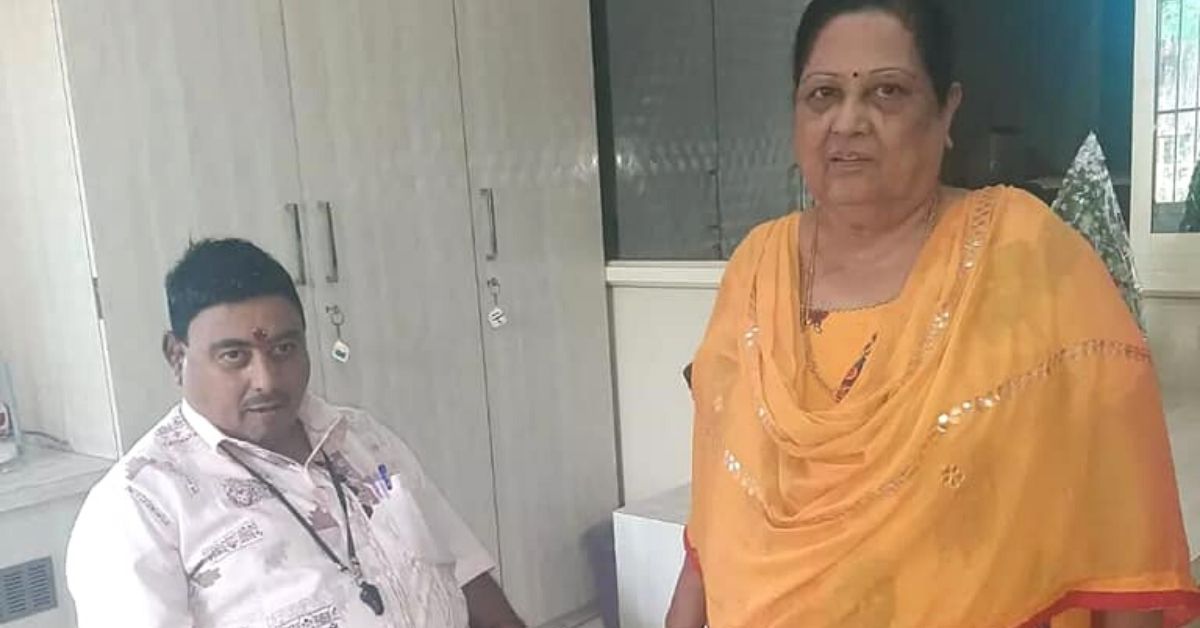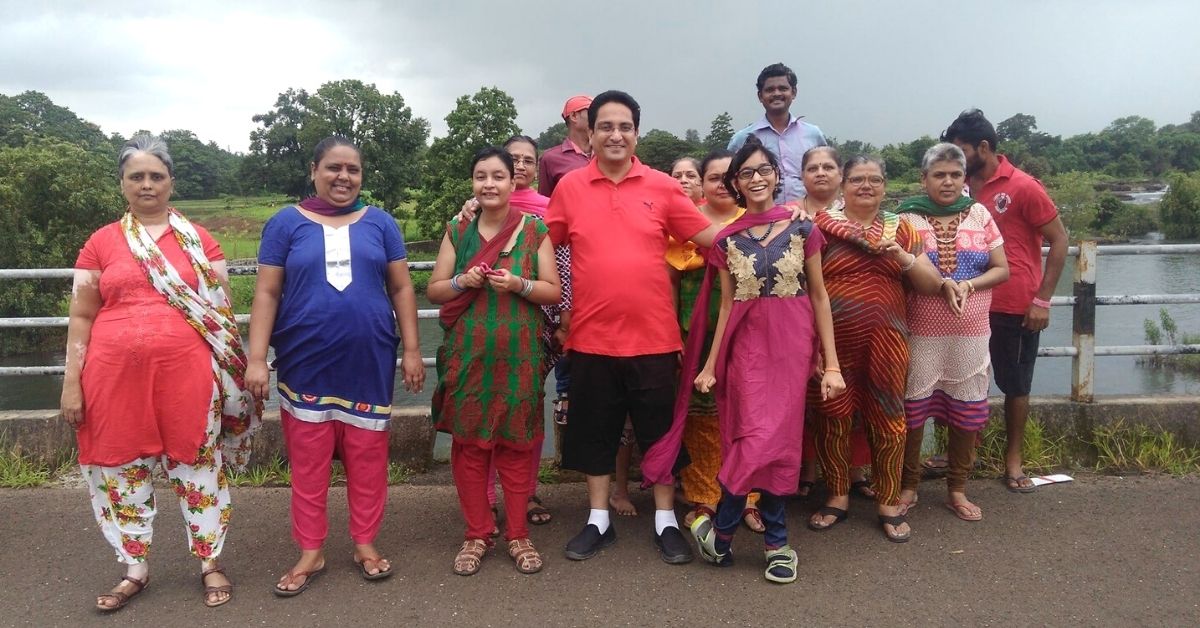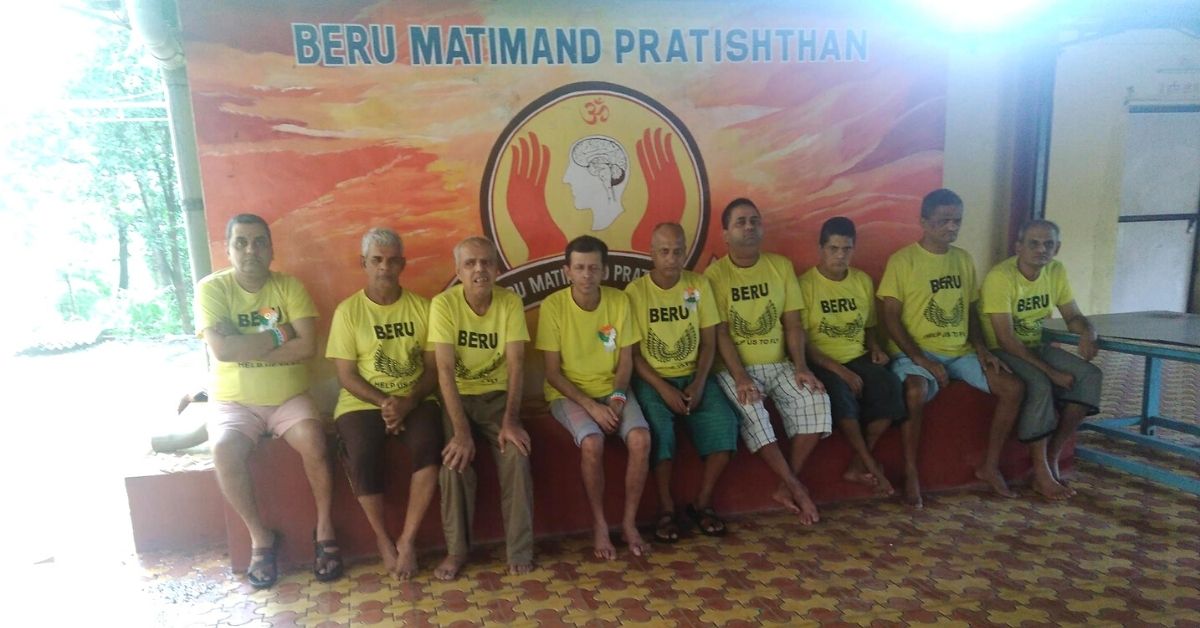After Son’s Diagnosis, Couple Dedicates A Lifetime To Care For 500 Disabled Patients
Sulochana and Niraj Beru began the Beru Matimand Pratishthan to care for patients with mental disabilities after watching their own son suffer due to a broken system

When Sulochana and Niraj Beru’s son was diagnosed with an intellectual disability in 1969, they experienced first-hand the tribulations of caregiving. It was a time when the stigma around mental health was even more severe, Sulochana says.
“Back in the 70s, society did not treat mental health patients well, and having a person with mental illness at home was a troubling experience for any family. There was a lack of awareness around it, which continues to date,” she tells The Better India.
“Our son was three years old when we first learned of his disability. At first, we didn’t realise he had it, but over time, we noticed his changing behaviour. We visited a few doctors to confirm his condition. It was a shock for us and took time to comprehend,” she recalls.
At least 20 million mentally disabled persons in India have no access to a home or safe shelter. Of the total, about 10 per cent are children. Poor infrastructure and unhygienic conditions of government-established institutes fail to meet their needs and ensure optimal care.

Sulochana says she tried to admit her son to a school for children with disabilities. But the institutes either said no, or the management ended up asking him to leave after a few months, she adds. “He would often tear his classmates’ books, which became a nuisance for teachers and other students, who complained about him,” she says.
Sulochana adds that her son’s behaviour also started affecting his elder brother.
Teachers and other people close to her suggested she admit her son to a mental hospital. Seeing no other alternative in sight, she decided to follow through with the tiring and painful process.
Creating a safe space
“The process included informing the mental hospital, after which there were procedures to follow up with the police and a hearing at the court. The court needed an explanation about the mental health condition of my child, after which he was permitted to be enrolled. However, admission at the mental hospital would only serve the purpose for a month. He could not be kept longer,” she explains.
Sulochana says the couple suffered for years. “Doctors would perform treatments as per the protocol and release him as stated by the law. But there was no improvement in his mental health. Eventually, we accepted that our son would never heal,” she adds.
The 75-year-old says that there was no place to rehabilitate their son. “While interacting with parents who have children with mental disabilities, we learned that like us, many families were going through the same agony. Many could barely afford medicines or basic healthcare,” she says.
Sulochana and Niraj then decided to start a residential shelter home for their son and other children in a spare parts shop that Niraj owned near Pune.
They started a small centre at Alandi with five children, including their son. “We rented a small property using my husband’s savings and set up the home with furniture, a gas stove, and other essential items. But residents in the neighbourhood did not accept our initiative, and the children had to move out,” she says.
In 1989, Sulochana shifted to Pune with the kids to formally establish Beru Matimand Pratishthan, where they leased a bungalow and resided for four years. “But we had an agreement with the landlord who lived abroad to give up the property when he returned. By then, I had 25 boys, and most of their parents lived in Mumbai,” she says.

She adds, “The parents were finding it difficult to travel frequently to meet their children. They suggested we move to a place near Mumbai. We needed land between Pune and Mumbai for convenience, but we could not afford one.”
In 1995, Sulochana and Niraj leased a 2.5-acre land from the government in Badlapur for 20 years on a renewal basis.
“It was envisioned by my husband, who designed every aspect of treating a patient and creating private spaces for men and women. Niraj also insisted on separate kitchens and other comfort aspects of the shelter home,” she says.
It has been ten years since her husband passed away, and Sulochana has been running the endeavour single-handedly. Her elder son managed their Pune shop and assisted Sulochana with the shelter home as needed. “But he passed away in 2021, and now I am the only one running the show,” she says.
Speaking about its functioning, Sulochana says, “The persons inquire about admitting their loved ones for care at the shelter home. Interested individuals visit the place and learn about the treatment and facilities offered to the patients. They fill out a form during admission, and sign an agreement. A one-time non-refundable donation of Rs 70,000 is requested.”
Moreover, a monthly fee of Rs 15,500 is charged to the patient’s kin to meet daily expenses. “The medicine costs differ for each patient and are provided by the families. The shelter takes care of food, living and other health expenses, which include monthly medical check-ups and weekly counselling by a psychiatrist,” she says.
Sulochana says that an in-house nurse takes care of physiotherapy and other daily needs of the patients.
Unlike other shelter homes or NGOs which host disabled persons, there is no scope to organise workshops for mentally ill patients or empower them through skill development. “People fail to understand what a mentally disabled person truly goes through. They are restless and find it difficult to even sit or sleep in one place. Intellectually disabled persons have to be constantly looked after and even fed at all times. They can hardly manage themselves, let alone learn something new,” Sulochana says.
She adds that most of these patients admitted at the shelter home have a history of being abused, abandoned, and mistreated by society. “They need special care and attention,” she says.
At present, the shelter home has over 100 residents, among which are 40 orphans that Sulochana has adopted. “People continue to live here until they pass away. So far, we have served over 500 patients from all age groups, genders, and social strata of society,” she says.
A lifetime of service

Sulochana says arranging funds to meet the ever-increasing expenses of the organisation makes daily operations difficult. “We have about 20 staff members to pay, and other property maintenance demands money. A few donors from Ulhasnagar frequently offer monetary help, but we barely manage to survive,” she adds.
Besides, there is no permanent drinking water supply, and the NGO has to rely on borewells to meet daily water requirements. “We procure potable water from neighbouring areas but plan to set up an RO plant. Installing a solar panel for an electricity and wastewater treatment plant is also under an anvil. Our monthly electricity expenses cross Rs 1 lakh, and using solar will help reduce it to half,” she says.
But while the challenges are plenty, Sulochana is determined she will help her patients until her last breath. “I face challenges daily, but my aim remains to care for the patients and make them comfortable,” she says.
To donate to the foundation, click here.
Edited by Divya Sethu
If you found our stories insightful, informative, or even just enjoyable, we invite you to consider making a voluntary payment to support the work we do at The Better India. Your contribution helps us continue producing quality content that educates, inspires, and drives positive change.
Choose one of the payment options below for your contribution-
By paying for the stories you value, you directly contribute to sustaining our efforts focused on making a difference in the world. Together, let’s ensure that impactful stories continue to be told and shared, enriching lives and communities alike.
Thank you for your support. Here are some frequently asked questions you might find helpful to know why you are contributing?


This story made me
-
97
-
121
-
89
-
167











